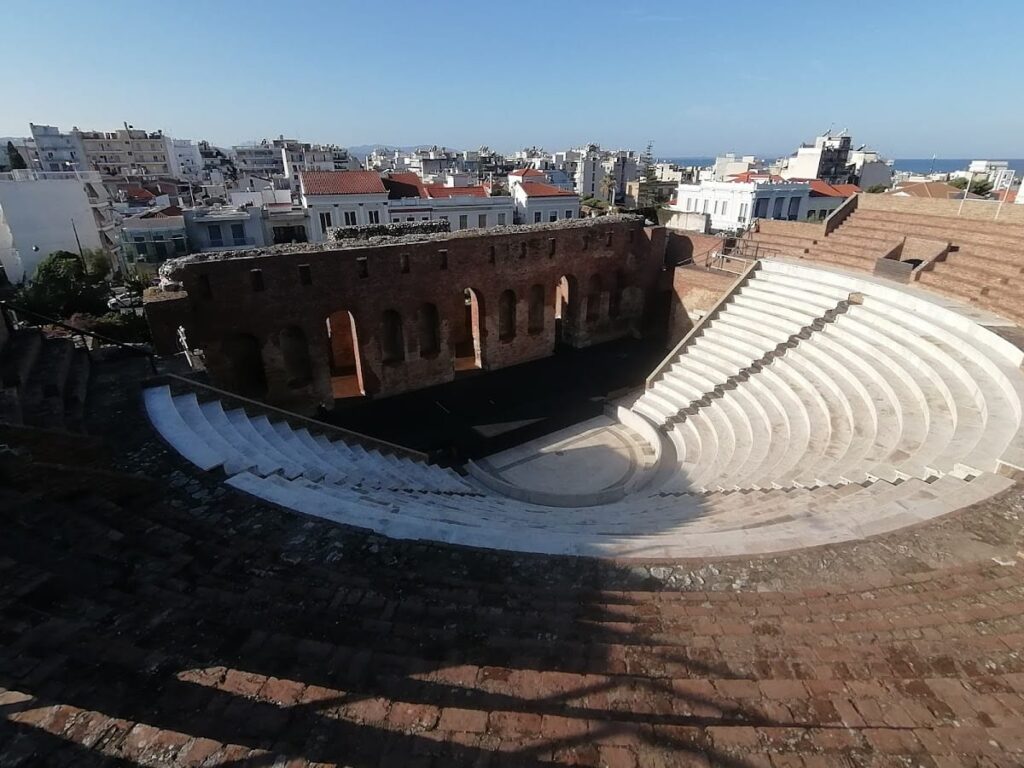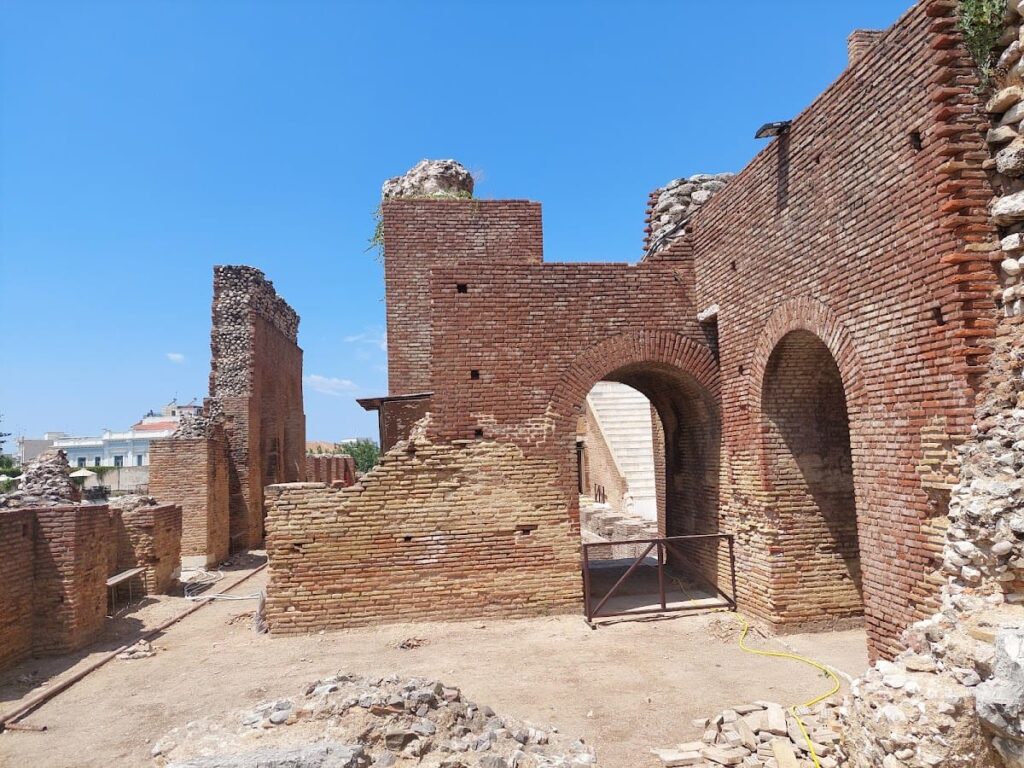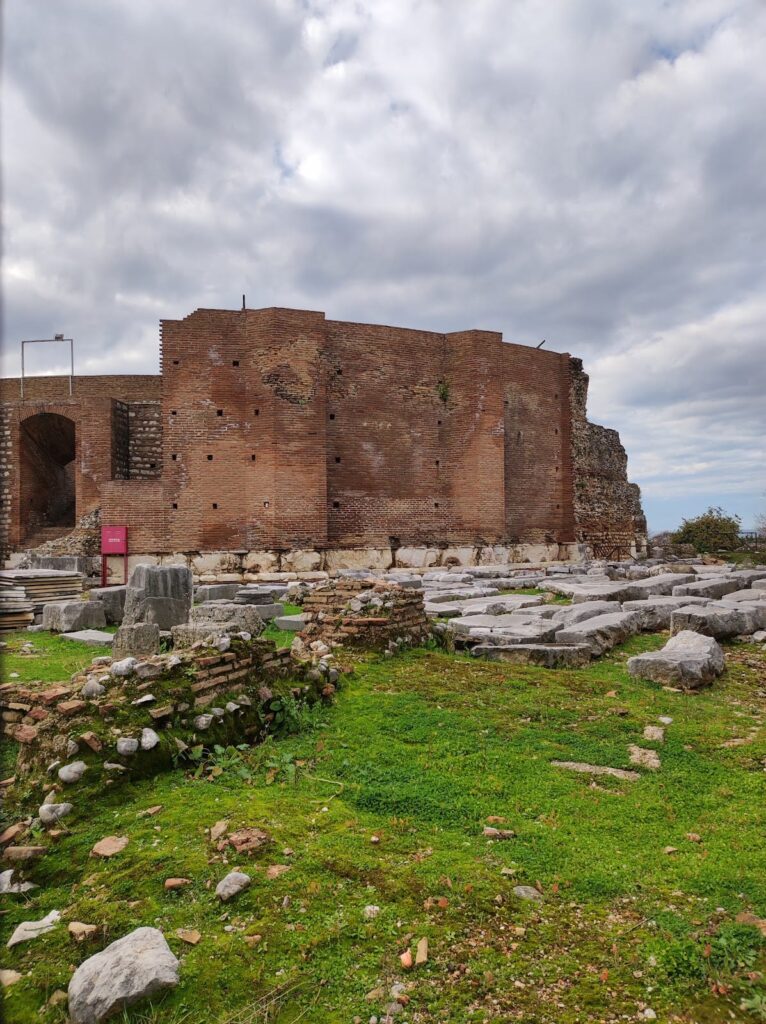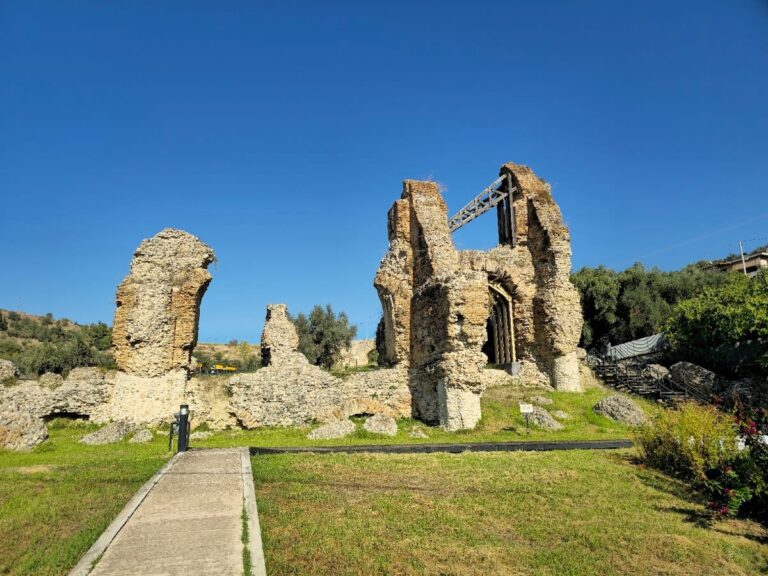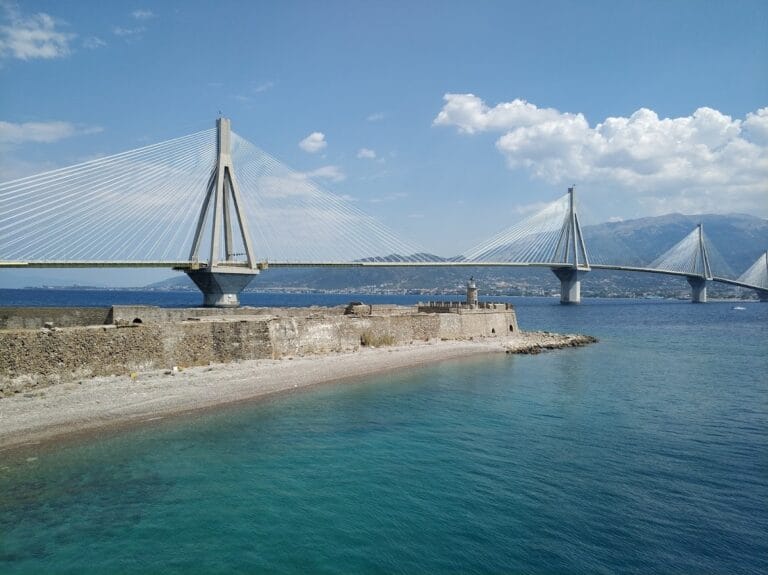Roman Odeon of Patras: An Ancient Cultural Venue in Greece
Visitor Information
Google Rating: 4.6
Popularity: Medium
Google Maps: View on Google Maps
Country: Greece
Civilization: Roman
Remains: Entertainment
History
The Roman Odeon in Patras is situated on the western side of the city in Greece. It was constructed during the Roman period, predating the famous Odeum of Athens. This places its origin before the Athenian Odeum, which is known for the statue of Apollo that once stood before it. The Odeon served as a venue for musical and theatrical performances, reflecting the cultural life of the Roman city.
Over time, the Odeon experienced significant damage caused by a series of invasions, wars, and natural disasters such as earthquakes. These events led to the structure becoming heavily buried beneath debris and later constructions, obscuring it from view for many centuries. The site remained hidden until the late 19th century.
In 1889, the Odeon was rediscovered by chance during excavation work related to the construction of the port in Patras. This accidental find sparked interest in the ancient remains, initiating efforts to uncover and preserve the site. Restoration work continued for several decades, culminating in 1956 when the Odeon was fully restored to its original architectural form. Following this restoration, the area around the Odeon was officially designated as an archaeological site, recognizing its historical importance within the city.
Remains
The Roman Odeon in Patras is designed to accommodate approximately 2,300 spectators. Its layout includes key components typical of Roman theaters: the cavea (the seating area arranged in a hollow or semi-circular form), the orchestra (the circular space used for performances), the proscenium (the front part of the stage), the stage scene, and the wings on either side of the stage. These elements together formed a complete theatrical complex.
Today, the Odeon stands restored and preserved, allowing the original architectural features to be appreciated.
